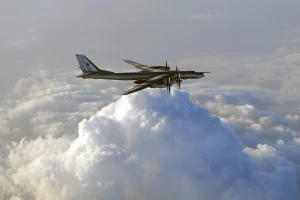
Ukraine’s parliament voices unattainable requirement by Polish carriers
First Deputy Chairman of Ukraine’s Verkhovna Rada Committee on Transport and Infrastructure, Yulia Klymenko, says that most of the requirements put forward by Polish carriers can be met
She shared the information at a briefing at the Ukraine-Uninform Media Center, Espreso reports.
Yulia Klymenko reminded that Polish carriers have five main requirements.
"Some requirements can be fulfilled by the Ukrainian side. This includes access to the Shlyakh system (system launched by Ukraine's Cabinet of Ministers which allows male drivers liable for military service to cross the border - ed.), and the return of empty European trucks without a queue," she said.
However, according to her, the only requirement that cannot be fulfilled is the abolition of the EU's "transport visa-free regime" for Ukraine and a return to the system of permits for road transportation.
"Ukraine should insist on this - that it is still the liberalization of freight transportation. Because this is the main way for us now. If we return the permits that were issued before the war, which is only about 200,000 per year, we will actually reduce cargo transportation in Ukraine by three times, and accordingly, three times less goods needed by Ukrainians will be delivered to Ukraine," Klymenko emphasized.
Strikes on the border between Poland and Ukraine
Strikes have erupted on the Poland-Ukraine border due to increased competition following the opening of international transportation between Ukraine and EU nations. To address this, the Ministry for Communities, Territories and Infrastructure Development initiated talks with Poland and the European Commission.
Responding to the potential border blockage, the State Border Guard Service provided comments, and Ukraine formally communicated its concerns to Poland regarding the planned strike by Polish carriers at the Ukrainian-Polish border.
On November 6, Polish carriers initiated a strike at the border. The Ministry of Infrastructure noted that no official demands had been submitted by the Polish carriers to Kyiv.
By the evening of November 7, Polish carriers had fully halted the movement of cargo vehicles at two border checkpoints with Ukraine.
Subsequently, it was revealed that trucks are facing up to a 90-hour wait to enter Ukraine.
On November 9, a meeting of government officials and carriers blocking the border with Ukraine took place in Poland, but it concluded without any resolution. Simultaneously, the lines of trucks are growing longer. Consequently, Ukraine has suggested to the Polish authorities the initiation of lanes for empty trucks and is currently awaiting their response.
On November 15, trilateral talks with Poland and the European Commission on unblocking the crossing points took place, but they did not yield any results. Instead, the European Commission may initiate measures against Poland if the authorities do not resolve the issue of carriers blocking checkpoints on the border with Ukraine.
Polish carriers have promised to tighten the blockade on the border with Ukraine. In addition, customs officers have begun to record an increase in truck queues in the Slovak direction.
Ukraine and Poland are preparing claims for damages caused by the blockade of border crossing points due to the rally of Polish carriers. In addition, it has been reported that Polish carriers are not allowing humanitarian aid and dangerous goods to pass through.
According to Volodymyr Balin, vice president of the Association of International Road Carriers, Polish carriers are violating the terms of the strike, which could help to get it called off. At the same time, the Ukrainian economy has already suffered losses of more than €400 million.
Meanwhile, the Polish government has called on Ukraine to cancel the e-queue registration for empty trucks. Poland’s Minister of Agriculture also met with the protesters and offered them a compromise solution.
On December 4, the EU Transport, Telecommunications and Energy Council (TTE) will discuss the situation with the blockade on the Polish-Ukrainian border.
- News












































